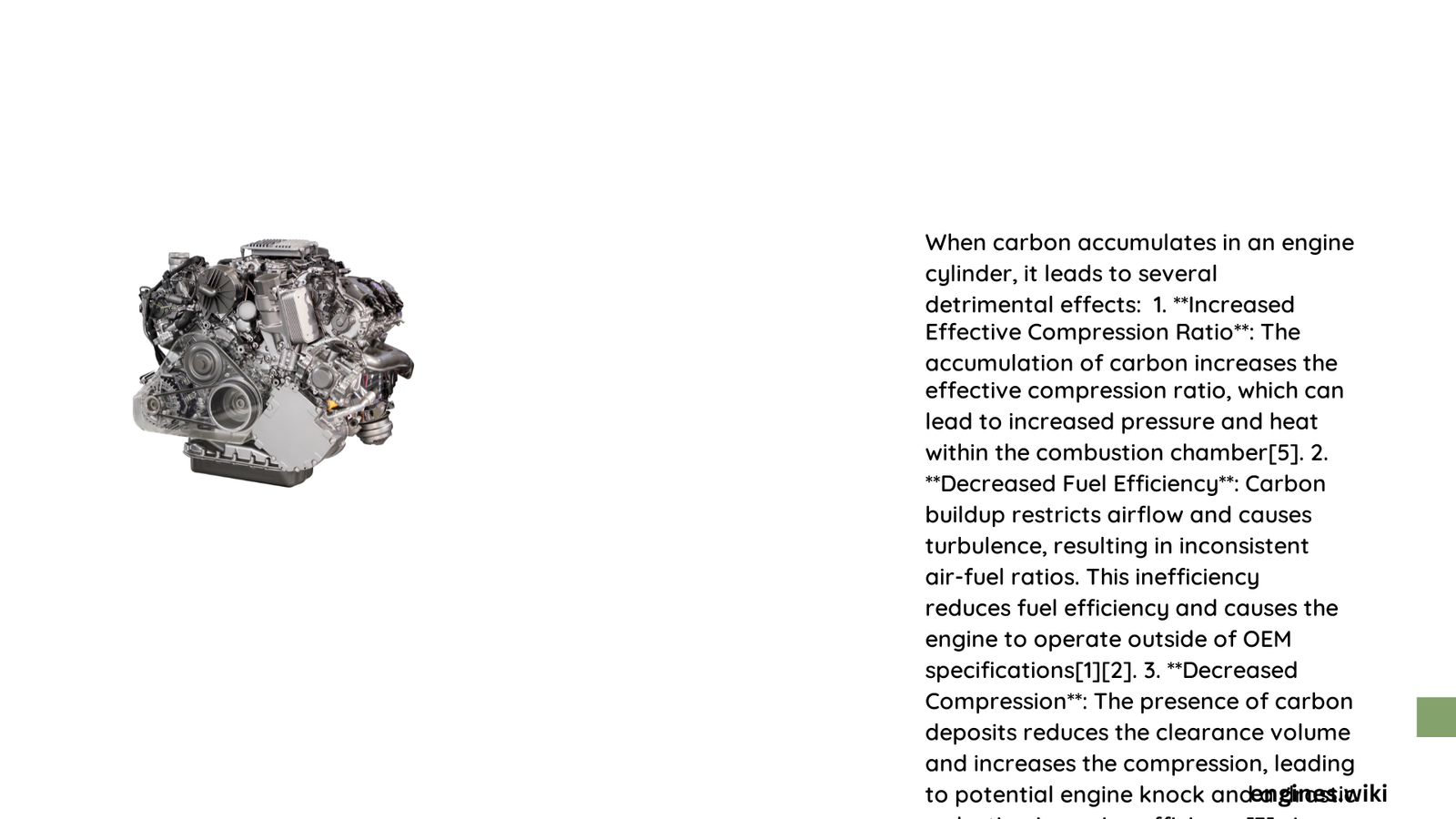Carbon accumulation in engine cylinders represents a complex mechanical phenomenon where unburned fuel, oil residues, and combustion byproducts gradually deposit on internal engine surfaces, compromising performance, efficiency, and long-term mechanical integrity. These microscopic carbon layers progressively develop through multiple operational conditions, creating potential risks for engine functionality and requiring strategic intervention.
What Triggers Carbon Accumulation in Engine Cylinders?
Fuel Quality and Combustion Dynamics
Carbon accumulation emerges from multiple interconnected factors:
| Factor | Impact Level | Description |
|---|---|---|
| Fuel Composition | High | Low-quality fuels increase incomplete combustion |
| Driving Patterns | Medium | Short trips prevent optimal engine temperature |
| Air-Fuel Ratio | Critical | Rich mixtures generate excessive carbon deposits |
Primary Mechanisms of Carbon Deposit Formation
- Incomplete Combustion
- Insufficient oxygen during fuel burning
- Unburned hydrocarbon residues
-
Temperature inconsistencies
-
Oil Contamination
- Worn piston rings
- Compromised valve seals
- Oil leakage into combustion chambers
How Does Driving Behavior Influence Carbon Buildup?
Driving behaviors significantly contribute to carbon accumulation:
- Frequent Short Trips
- Prevents engine from reaching optimal operating temperature
-
Increases condensation and incomplete fuel burning
-
Aggressive Acceleration
- Creates rich fuel mixtures
- Generates localized high-temperature zones
- Promotes uneven carbon deposition
Symptoms of Advanced Carbon Accumulation
Recognizing carbon buildup involves monitoring specific performance indicators:
- Engine knocking
- Reduced fuel efficiency
- Rough idling
- Decreased acceleration responsiveness
- Increased exhaust emissions
Diagnostic and Preventive Strategies
Cleaning and Maintenance Techniques
- Chemical Interventions
- Specialized fuel additives
- Regular system cleaning agents
-
Professional carbon removal services
-
Mechanical Approaches
- Periodic high-temperature engine cycles
- Professional carbon cleaning technologies
- Precision valve and cylinder head maintenance
Long-Term Consequences of Neglected Carbon Buildup
Unaddressed carbon accumulation can lead to:
– Accelerated engine component wear
– Potential catastrophic mechanical failures
– Substantial repair expenses
– Reduced overall vehicle performance
Expert Recommendations

- Use high-quality fuel consistently
- Maintain regular service intervals
- Implement periodic professional engine diagnostics
- Adopt smooth, consistent driving patterns
Technical Mitigation Strategies
- Utilize premium fuel additives
- Ensure proper air-fuel mixture calibration
- Monitor engine performance metrics
- Replace engine components proactively
Conclusion
Understanding and managing carbon accumulation requires a holistic approach combining technological awareness, proactive maintenance, and strategic operational practices.
